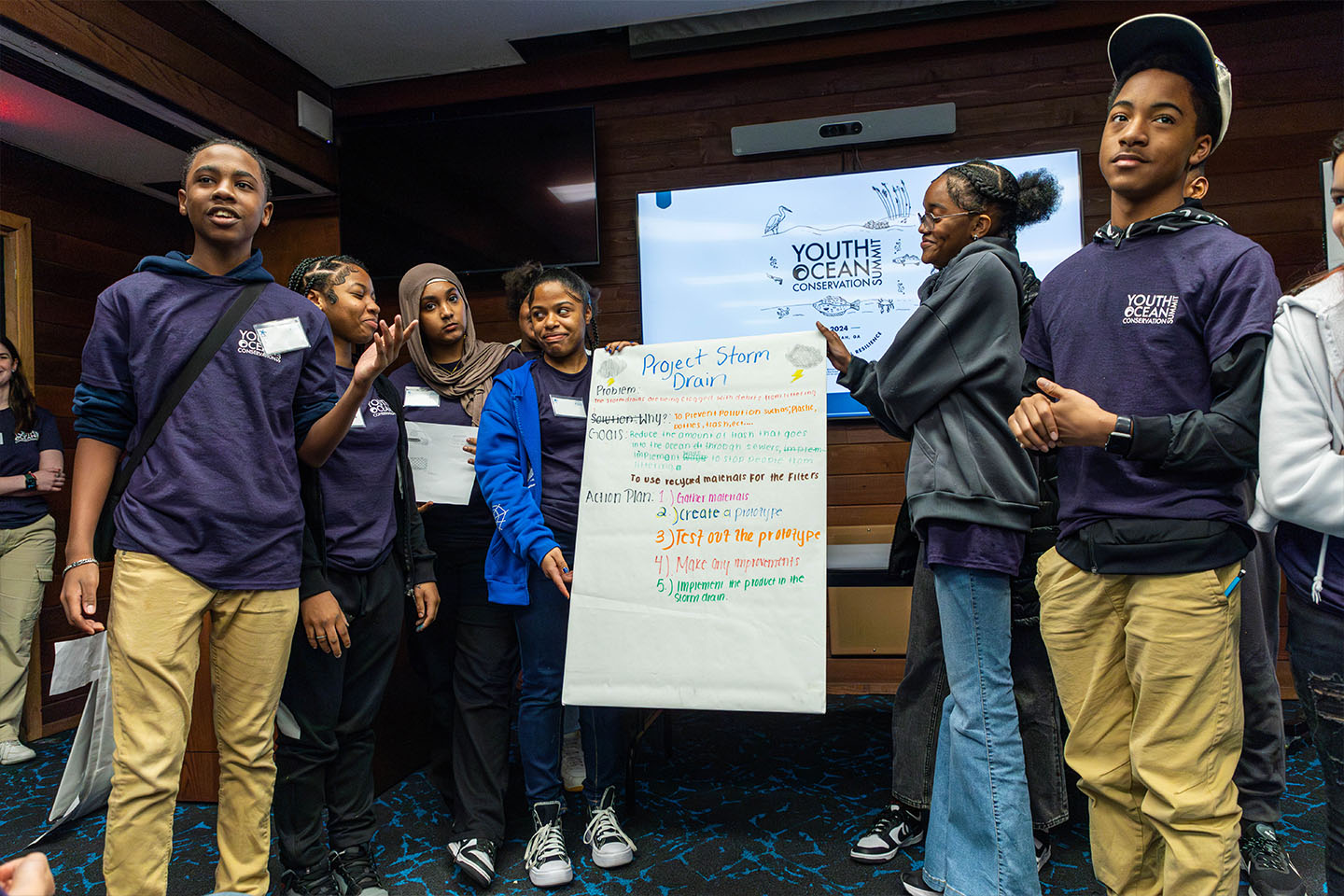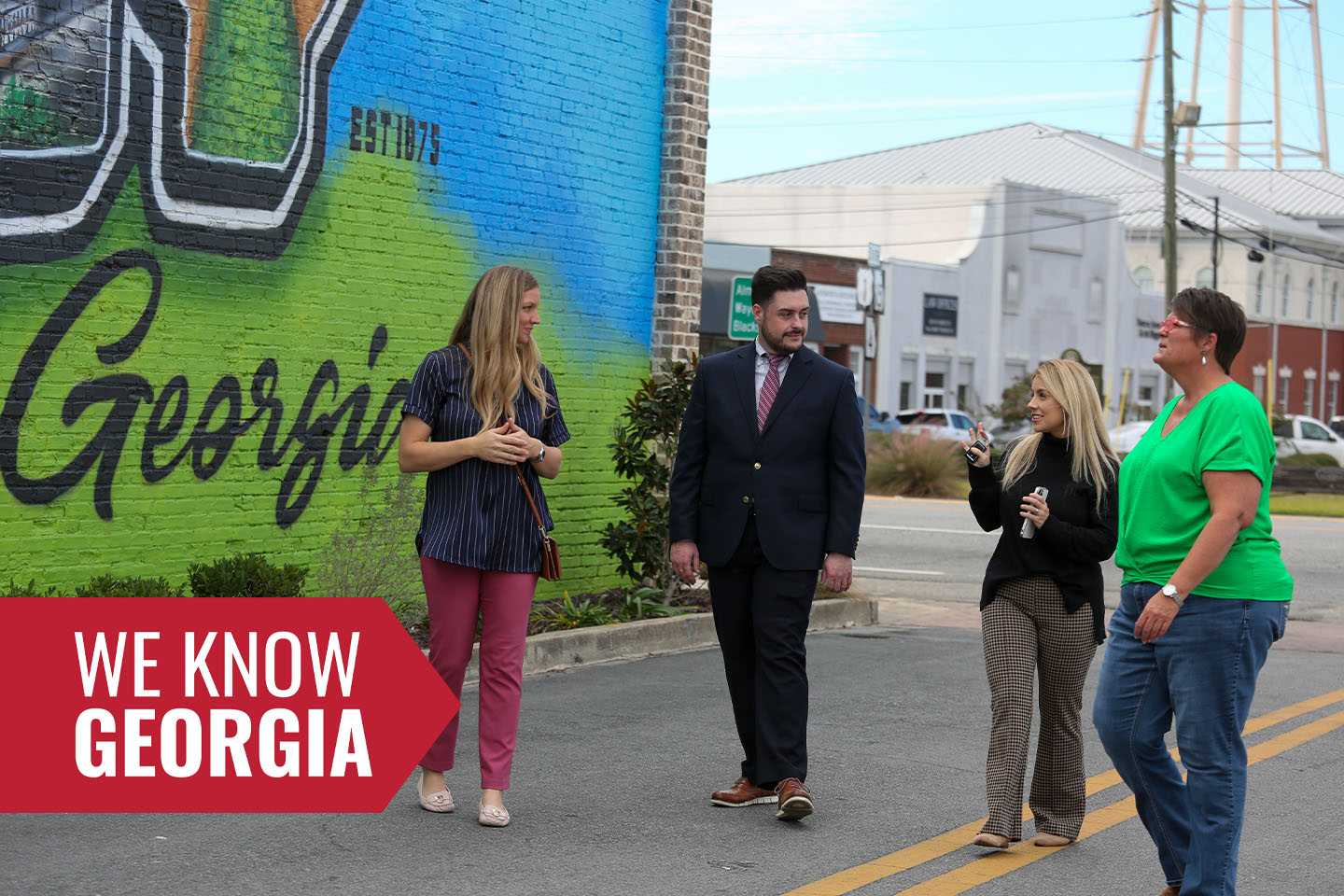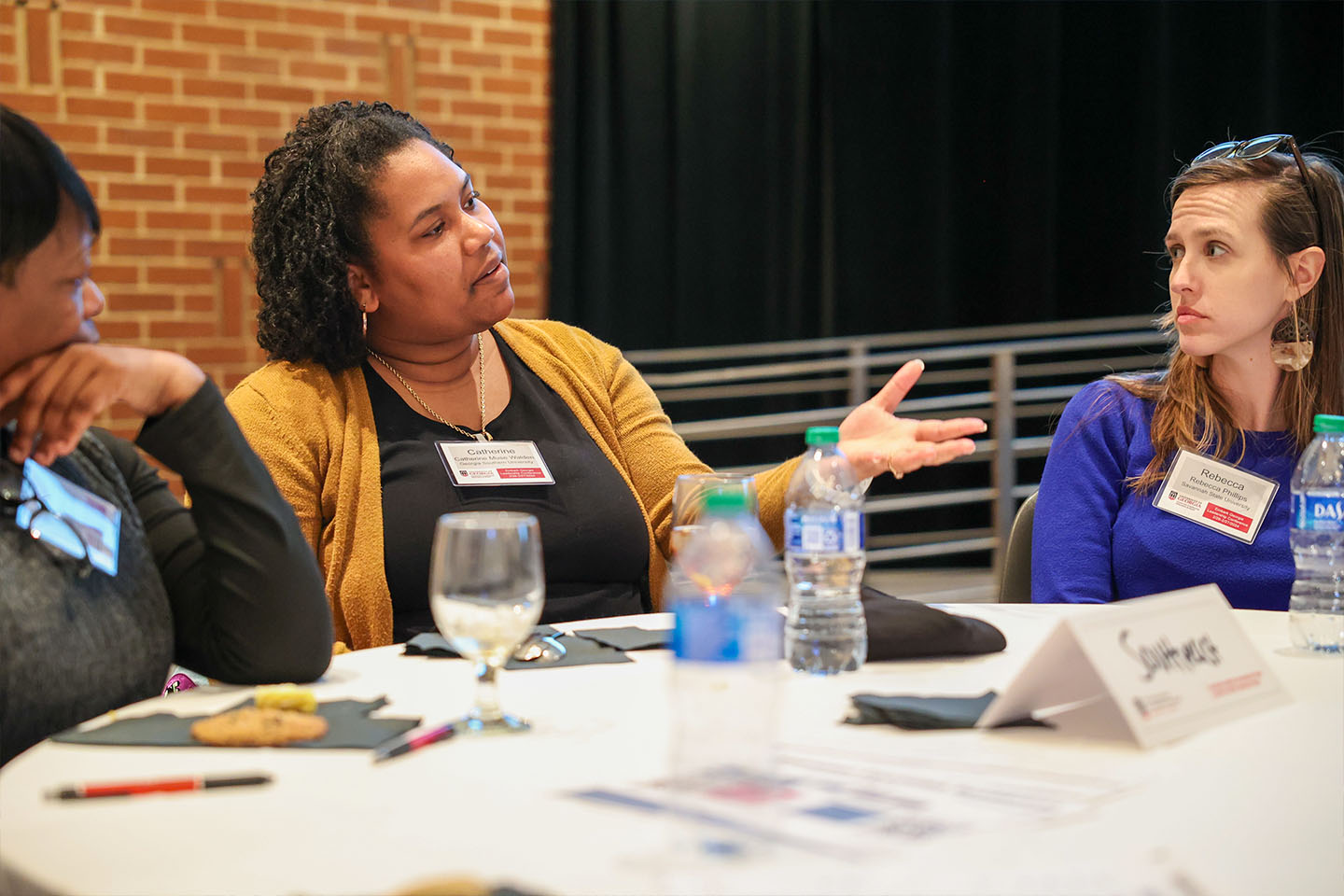Natasha Ganem, a lecturer in the department of sociology and 2014-15 Service-Learning Fellow, believes service is a series of actions that combine to successfully fill the needs of an individual or the needs of a community. Whether to serve, and to do so regularly throughout one’s life, is a value that can be cultivated.
Where did you earn your degrees, and what are your current responsibilities at UGA?
I earned my B.A. and my B.S. here in Athens from UGA, with majors in sociology, criminal justice and psychology. I earned my Ph.D. in Sociology from Emory University. My post-doctoral training and certifications are in the fields of institutional effectiveness, accreditation, institutional research, assessment, strategic planning and management development. I am currently a lecturer in the department of sociology and a participant in the Service-Learning Fellows Program. I teach Introductory Sociology, Sociology of Leadership, Research Methods and Juvenile Delinquency. I also supervise the academic work submitted by criminal justice students enrolled in their capstone internship program.
When did you come to UGA, and what brought you here?
The outstanding academic reputation of the UGA student body was a driving force. Combined with the opportunity to teach alongside the other fantastic faculty members in the department of sociology, we were very happy to return. My family has enjoyed regular visits to Athens over the years. We like sporting events and being Bulldogs so we feel like a perfect fit.
What do you think is the best part about your job?
Seeing students think deeply about new material is my favorite time of any given day. Knowing that I provide a structure and circumstance where that could happen is the best part.
Describe your current research or service projects.
I have a strong interest in the sociology of organizations and leadership. I am currently combining this interest with my past work in criminal justice, emotion management, and identity development through my new Juvenile Delinquency service-learning course. As part of course requirements, students are required to mentor at-risk youth in the community. A challenge we face, however, is that college students struggle to effectively identify with a leadership role. They therefore find it difficult to become powerful mentors. We tackle that aspect of leadership efficacy in class and apply it to their service-work in the community.
Why do you serve?
I had many advantages growing up – loving parents, dependable financial support, wonderful teachers, hard-working role models, and more. To any extent I can provide these advantages to other children, or counter-balance disadvantages they might face, it is my pleasure to do so. I find it rewarding to get connected, share knowledge, and to do something to help. It makes life better to serve.
What do you feel is UGA’s role as a land- and sea-grant university?
UGA has a responsibility to spread knowledge throughout the Georgia citizenry and to help the state and its people prosper. We have the responsibility to ‘go beyond the arch’ in this way. The Office Public Service and Outreach at UGA is designed to accomplish this mission. We are fortunate to have that structure in place.
What does it mean to you to work at a land- and sea-grant university, both personally and professionally?
I am proud to work for an institution that reaches beyond its borders to serve. Professionally this means that I think beyond the student in the classroom as the key recipient of a UGA education. I think of how that student will spread knowledge when they leave our institution. Of equal importance, I think of the students that are not able to attend our university. How can I positively impact them even though they are not on campus?
What are the benefits of attending a land-grant university for students, as opposed to the experience they would get at a non-land-grant university?
When the mission and structure of a university has this design, students can apply their academic classroom experience to the benefit of the community around them. This not only allows for a deeper absorption of knowledge, but a stronger retention of concepts, and it models to students that community and public service are important and valuable activities – a way to live life through their adult years.
What do you feel is the value or benefit of students engaging in service-learning and public service?
Through UGA’s service-learning program, I am able to put a significant force of student workers into the field each spring semester. Many community youth are positively impacted by this, yet the impact on UGA students is equally pronounced. Student reflections at the end of the semester are indicative of this: “I learned more from the kids than they learned from me,” “I learned that I can make a really big impact on other people’s lives,” “I became aware of educational differences and economic differences,” and “I learned to communicate well with children.” Students also report that the service-learning component of class helped them to reinforce current career aspirations or create new ones. Many report the service-work to be among their “most memorable and rewarding” experiences




